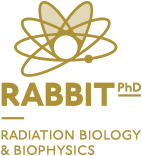Seminário “Positron scattering by molecules: recent advances and applications of the Schwinger multichannel method”
Seminário: “Positron scattering by molecules: recent advances and applications of the Schwinger multichannel method”
Proferido por: Prof.a Dr.a Alessandra Souza Barbosa, da Universidade Federal do Paraná, Brasil
Local: Sala de Seminários 213 do Edifício I
Por vídeoconferência em:
https://videoconf-colibri.zoom.us/j/344521416?pwd=WVdzSFQ4cXdJT2oyMzdITjlLaDN6Zz09
Resumo:
Due to its fundamental, technological, and biological applications, positron physics is an area of great interest. A crucial aspect of understanding the underlying physics of these applications is the study of positron-molecule scattering since many of these applications are based on basic interactions of positrons with molecules [1]. In recent years, theoretical positron-molecule studies have gained new momentum thanks to the advent of better theoretical methodologies and computer simulations, while experimental advances have significantly improved the available data in literature. However, positron-scattering calculations can be challenging due to intrinsic problems, including the formation of positronium (Ps) when the incoming positron captures one of the target electrons. Even more troublesome, at energies below the Ps formation and electronic excitation thresholds, the agreement between the theoretical calculations and experimental data is far from good. This is mainly due to a poor description of the polarization potential for positron scattering. In this talk we will present results for positron scattering by molecules, obtained with the Schwinger [2] multichannel method. In particular, we will focus on the description of the polarization effects, since the way this usually done in ab-initio methods [3] to recent advances with a model potential implementation [4].
Referências:
[1] M. J. Brunger, S. J. Buckman, K. Ratnavelu, J. Phys. Chem. Ref. Data 46, 023102 (2017)
[2] J. S. E. Germano and M. A. P. Lima, Phys. Rev. A 47, 3976 (1993).
[3] see, for instance, A Souza Barbosa, S. Sanchez, M. Bettega, J. Phys. Conf. Ser. 1412, 052001 (2020) and references therein.
[4] F. Frighetto, A. Souza Barbosa and S. Sanchez, submitted for publication.
Alessandra Souza Barbosa Bio:
Possui graduação em Bacharelado em Física (2011), Mestrado em Física (2013) e Doutoramento em Física pela Universidade Federal do Paraná (2017), Brasil, com intercâmbio (durante o doutoramento) na Universidade Nova de Lisboa. Atualmente é Professora Adjunta da Universidade Federal do Paraná. Tem experiência na área de Física Atómica e Molecular, trabalhando principalmente com dispersão de electrões e positrões por moléculas e caracterização de estados eletronicamente excitados de moléculas, com publicações regulares nas principais revistas da área de Física Atómica e Molecular. Também tem interesse em questões de género nas ciências e atua no projeto de extensão Meninas e Mulheres nas Ciências, da Universidade Federal do Paraná, pela inclusão e permanência de meninas e mulheres nas ciências.



